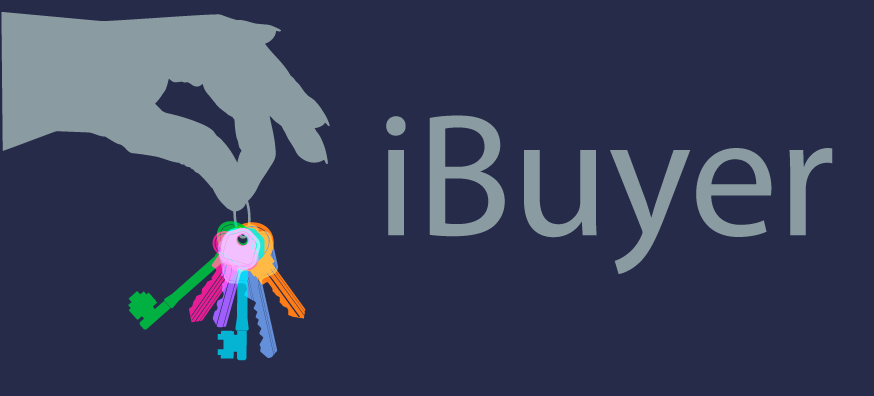In 2018, we published an article on this blog about the rise of the iBuyer and what it means for your business. Our understanding has evolved since then. That’s why we’ve decided to update our previous article with some new perspectives.
Just like last time, we want you to understand what iBuyers are and what they might mean for your business in the future. Let’s get started.
What Are iBuyers?
 The term “iBuyer” can be hard to define because people use it to describe many companies with unique business models. What makes a company an iBuyer, instead of a technology developer or a house flipper?
The term “iBuyer” can be hard to define because people use it to describe many companies with unique business models. What makes a company an iBuyer, instead of a technology developer or a house flipper?
Fundamentally, iBuyers are companies (or divisions of companies) that make fast, often automated or partially automated cash offers on real estate listings. They turn around and sell the listings, potentially remodeling or otherwise updating the properties in the process. Depending on the iBuyer, they may or may not work with real estate professionals.
Some critics claim the iBuyer model is no more than a new name for home flipping. Proponents, however, point to two important differences: technology and business model. (If you read last year’s article, you’ll note that we’ve updated our definitions.)
First, iBuyers have made several technological advances. Most iBuyers have their own automated valuation model (AVM) that helps them price listings – some even using machine learning and neural networks to come to a price estimate. When it comes time to sell the listings, some iBuyers incorporate technologies such as augmented reality, identity verification, and self-touring with the aim of making the buyer’s experience seamless, painless, and high on the “wow factor.”
Second, the iBuyer business model differs from “flippers,” in that – in general – iBuyers are more likely to buy homes that won’t require much renovation to bring back to market. Flippers often buy homes at below market value, renovate them, then turn around and sell them for profit. iBuyers, on the other hand, tend to focus on transaction volume rather than per-unit profit.
As of this writing, each iBuyer company operates in one or more pilot markets, often overlapping. Many of them have expanded into CRMLS service areas or plan to do so soon. If you haven’t run into an iBuyer in your day-to-day business, you may soon.
What Do iBuyers Mean for Your Business?

In our original post, we wrote that it’s “too early to tell” what iBuyers mean for you, since they “haven’t [yet] disrupted the way most of the industry does business.” To an extent, this is still true. In CRMLS service areas, iBuyer transactions currently (as of March 2019) make up a small percentage of total volume.
Even so, change is in the wind. When iBuyer companies raise massive amounts of capital, and when industry giants commit heavily to iBuyer programs, dismissing iBuyers as another “startup craze” becomes difficult.
The purpose of this blog post is neither to speculate on the future of iBuying nor to offer advice on how you as a real estate professional should prepare for any potential changes in the market. Instead, we present this information impartially for your consideration.
Whether or not iBuyers become a significant sector of the housing market, many companies are betting they will. If real estate is, as Brad Inman predicts, headed for its “cord-cutter moment”; if, as Rob Hahn predicts, 60% of home sales will be iBuyer by 2024; or even if, as Bernice Ross predicts, “the real winner in the iBuyer arena is the agent” – this trend is worth monitoring.
Conclusion
More information about iBuyers exists than we can cover in this post. Like we did in our previous article, we can only keep up with what’s already happening – not guess what’s going to happen.
Even so, we hope this introduction has been helpful. As always, if you have any questions or concerns, please reach out to us in the comments below, or via the CRMLS Customer Care Department at 800-925-1525.




This Post Has One Comment
As a new brokerage, we aim to train and equip our staff and agents to meet this demand for iBuyers. Would love to know how we can set our agents up to succeed in these coming changes in regards to tools and systems.